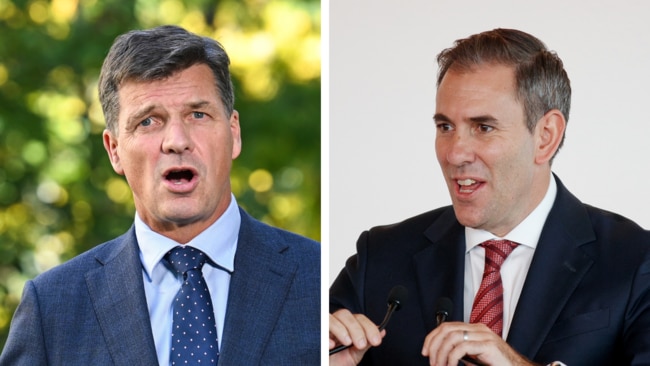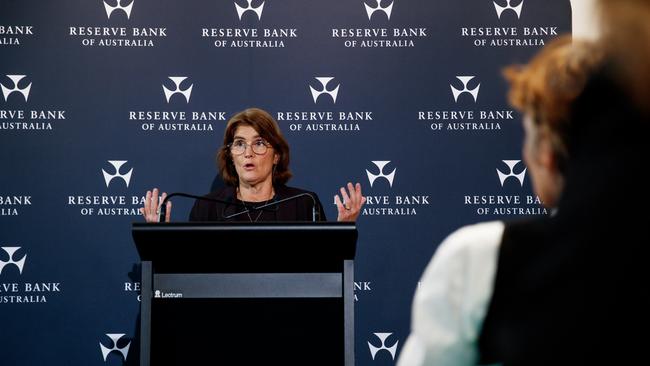Investors, economists bolster rate hike bets as inflation intensifies in May
A higher-than-expected inflation rate of 4 per cent for May has raised expectations the Reserve Bank will have to raise rates at its next meeting.
Interest Rates
Don't miss out on the headlines from Interest Rates. Followed categories will be added to My News.
The Reserve Bank could raise rates as soon as August, investors and some economists expect, after inflation surged to its highest level in six months, underlining the struggle to contain simmering price pressures.
The monthly consumer price index, a measure of goods and services cost across the economy, jumped to 4 per cent in the year to May, the Australian Bureau of Statistics said on Wednesday.
That’s up from 3.6 per cent in April and well above economists expectations of more modest lift to 3.8 per cent.
However, annual headline inflation excluding holiday travel and other volatile items including fruit, vegetables and automotive fuel, eased slightly to 4 per cent, down from 4.1 per cent a month earlier.
Traders immediately bolstered their bets that the RBA would move to increase interest rates for a 14th time since May 2022.
Money markets ascribe a 54 per cent chance of a rate hike at the central bank’s September meeting, and odds above 40 per cent for an August increase.Prior to release, markets had ascribed 13 per cent chance of an increase to the cash rate in August.
Any reduction in interest rates was not fully priced until October 2025 – 16 months away.
Responding to the hotter-than-expected result, economists also jettisoned their interest rates forecasts, with some analysts expecting governor Michele Bullock to announce a 25 basis point increase after the RBA’s next board meeting scheduled for August 5-6.
“Unless there is a stunning reversal in underlying inflation pressures in the month of June, we think that another material beat on the RBA’s near-term forecasts for trimmed mean inflation is looking very likely,” Deutsche Bank chief economist Phil O’Donaghoe said.
“That should prompt a rate hike,” he said, a view shared by economists at UBS and Judo Bank.
Meanwhile other analysts expected the RBA to remain on hold, many deferred an expected easing of interest rates through to early 2025.
“The RBA should hike but may well tolerate higher inflation to protect the labour market which suggests no scope for any easing until well into 2025 and a cash rate that may well stay on hold for the foreseeable future,” RBC chief economist Su-Lin Ong said.
Forecasters at Westpac were among the few still expecting a rate cut before year’s end, while Commonwealth Bank said it would review its forecasts for a November rate cut following the surprise inflation result.

Playing down the surprise reading, Treasurer Jim Chalmers pointed to other advanced economies that had also experienced an inflation rebound.
“We’ve seen around the world that inflation can zig and zag on its way down, it doesn’t always moderate in a straight line and the last mile can be a bit harder,” Dr Chalmers said.
Opposition treasury spokesman Angus Taylor blamed Labor for exacerbating price pressures and accused the government of “failing Australians”.
“This is what happens when you have a big spending Labor government that’s completely out of touch with the economic reality,” Mr Taylor said.
“We’ve now had four months in a row of accelerating core inflation. This will no doubt be of concern to the independent Reserve Bank.”
Contributing to the stronger-than-anticipated inflation result was a rise in housing costs, up 5.2 per cent in year to May, as rents surged 7.4 per cent and home building costs climbed 4.9 per cent due to the lack of rental properties of available and ongoing worker shortages hammering the construction sector.
Consumers were also hit with higher electricity prices, up 6.5 per cent over 12 months, with the ending of power bill rebates – to be reinstated by state and federal governments from July 1 – contributing to the increase.
Inflation across fruit and vegetables posted its biggest annual increase in a year, up 4.4 per cent.

Also confirming the pressure facing cash-strapped households was an increase in fuel costs, which surged 9.3 per cent compared to a year earlier, even as motorists enjoyed some relief at the petrol bowser.
An intensification in services inflation, with costs for insurance, hairdressing, vehicle repairs and going to vet all pushing higher, are also likely to add to the RBA’s concerns.
While inflation steadily retreated through 2023, falling from an annualised peak of 8.4 per cent in December 2022 to 3.4 per cent 12 months later, progress has since stalled, with stubborn price pressures holding CPI outside the RBA’s 2 to 3 per cent target band.
By itself, Wednesday’s monthly figures – which gives a more volatile reading of price pressures when compared to more comprehensive quarterly readings – won’t change the timing of if and when the RBA moves on interest rates, which affect variable mortgages and other loans.
However, the re-acceleration of headline inflation since December underscores the persistence of price pressures battering the economy.
The next full quarterly inflation reading, due July 31, will be instrumental in the board’s deliberations over whether to hike or hold interest rates.
Economists expect measured headline inflation to retreat sharply from mid-year as the host of rebates and subsidies from state and federal governments take affect.
However, combined with the stage three tax cuts, the additional cost of living support has raised concerns that the savings generated could fuel spending elsewhere in the economy, further exacerbating inflation pressures.
More Coverage
Originally published as Investors, economists bolster rate hike bets as inflation intensifies in May



